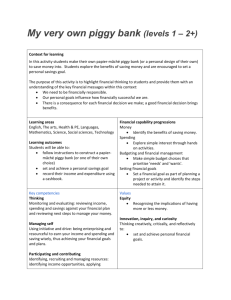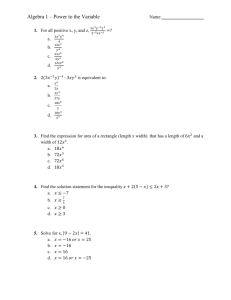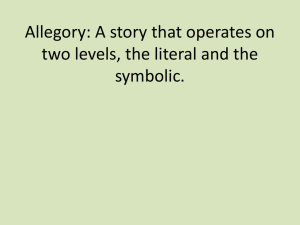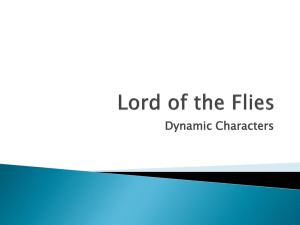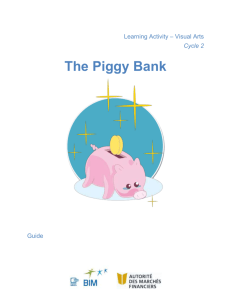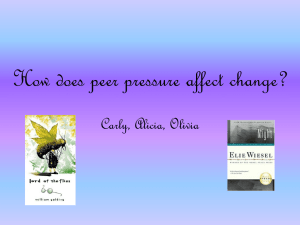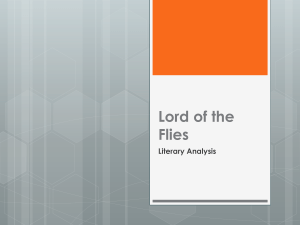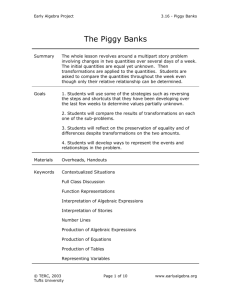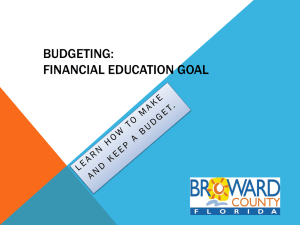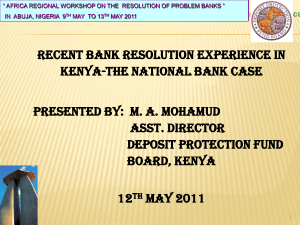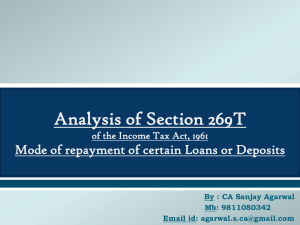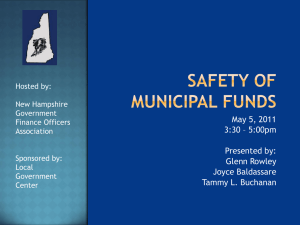Grade4-Lesson-3
advertisement
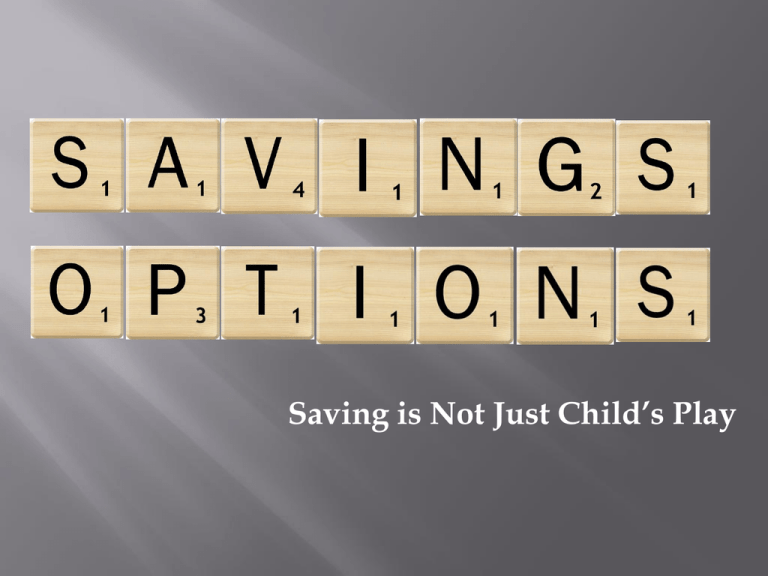
Saving is Not Just Child’s Play Once you have saved money, what should you do with it? Where should you save it so that it is safe, will be there when you want it, and may even grow a bit in value? Most children start out saving by putting coins into a piggy bank. Didn’t you? Saving money in a piggy bank is a great way to learn that you should save some of your money for things you want. It’s easy and it’s right there in your room. But, how safe is your money in a piggy bank? You won’t get more out than what you put in. Everyone knows that when they see a piggy bank, there is money inside. Anyone coming into your home or your room may be tempted to help themselves to the coins and bills in your piggy bank. You won’t know that anything has been taken until you empty your bank and count it. How often might you do that? Did you ever buy a popsicle or ice cream from an ice cream truck for 50¢? Well, now that popsicle and ice cream may now cost $1.00 or even more! A 12 oz. bag of potato chips used to sell for $2.79. You can still buy a bag of the same potato chips for $2.79 but now it only has 9.25 oz. of chips. Same price but fewer chips! Inflation means that the same amount of money will now buy less or the same item that you once bought now costs more. Whether you keep your money in a piggy bank or in a sock in your underwear drawer, we all tend to lose things at times. Have you ever put something somewhere “safe” and then forgot where you put it? One way to solve your piggy bank woes is to save your money in a basic bank savings account, an on-line savings account, a certificate of deposit, or a money market account. You can put your money in a bank or in a credit union. So, which one should you choose? A bank is a financial institution that accepts deposits of money from customers. Banks offer a safe place to store money. Banks also use the money deposited to loan to other customers. The people receiving a loan pay the bank interest for the loan. The interest rate is the “price” the bank charges for people to borrow money. Even though banks loan money, they keep enough on hand so that those with bank accounts can withdraw money. ? A credit union is a financial institution that is member-owned. If you open an account in a credit union, you are part owner. Credit unions serve groups that share something in common, such as where they work, live, or go to church. They are not-for-profit institutions and exist to provide a safe, convenient place for members to save money and get loans at reasonable rates. ? A basic savings account is an account used to deposit money at a bank. The account earns interest over time. Money can be added or removed from the account by visiting the bank or by making changes online. Usually you can add or withdraw funds at any time; there is no cost to do so. Financial institutions may limit the number of withdrawals each month. They may require a minimum deposit to open or maintain the account. - ? An online savings account is much like a basic savings account but without the building. All transactions are done online through the internet. ? A certificate of deposit (or CD) is a document from a bank stating that the person named has a certain amount of money on deposit. There is usually a certain amount needed to open the account and the money has to stay in the account for a period of time. The interest rate does not change for a set period of time. Withdrawing or taking your money out early will bring about penalties that will cause the owner to lose money. ? A money market account is easy to open like a savings account. The interest rate is typically higher than a savings account but less than a certificate of deposit. Money market accounts require a minimum balance of around $2500 to earn interest. Most financial institutions limit the number of withdrawals per month. What if you put your money in an account and the bank closes. What happens to your money? In Texas all banks have to have insurance through a government agency called FDIC. So, you will be given your money if your bank closes. If you put your money in a credit union, Texas requires that your money be insured, too, by the National Credit Union Administration (NCUA). So, if the credit union closes, you will get your money. ? For emergencies For short-term goals, such as a skateboard or a new bike For long-term goals, such as college or a new car To make our money grow/earn interest ? Interest is what the bank pays you for letting them use your money while they are keeping it safe for you. If you deposit $100 in a savings account, the bank may lend your money to a customer. The customer must pay the bank for borrowing money, and the bank pays you for letting them lend your money. The chart shows how your money can grow after 1 year and after 10 years. The more money you have in your savings, the more interest you will earn. Interest earned After 1 year After 10 years 1% $101.00 $110.46 1.25% $101.25 $113.23 2% $102.00 $121.90 3% $103.00 $134.39 5% $105.00 $162.89 Safety Convenience Availability Interest rate Minimum deposit Which option is best for you? It’s a personal choice depending on your needs. But there’s definitely a better way to save than in your piggy bank.


